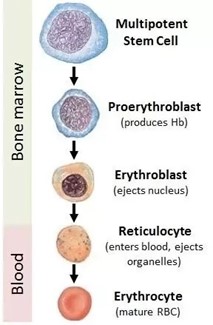Kidneys are part of the lymphatic system:
True
False
The Correct Answer is B
Kidneys are not part of the lymphatic system.
The lymphatic system is a network of vessels and organs that drain excess fluid from the tissues, transport fats and immune cells, and protect the body from infections.
Kidneys are part of the urinary system, which filters blood, regulates fluid and electrolyte balance, and produces urine.
Choice A is wrong because kidneys do not have a direct connection to the lymphatic system.
Although kidneys have lymphatic vessels in their cortex, they do not originate from the lymphatic system.
Kidneys receive blood from the renal arteries and return it to the renal veins.
The lymphatic vessels in the kidney cortex drain interstitial fluid and immune cells from the kidney tissue to the regional lymph nodes.
Some additional sentences are:
Choice B is right because kidneys are part of the urinary system, not the lymphatic system.
The urinary system and the lymphatic system have different functions and structures in the body.
Normal ranges for kidney function tests include blood urea nitrogen (BUN) of 7 to 20 mg/dL, serum creatinine of 0.6 to 1.2 mg/dL, and glomerular filtration rate (GFR) of more than 90 mL/min/1.73 m.
Normal ranges for lymphatic system tests include white blood cell (WBC) count of 4,000 to 11,000 cells per microliter, lymphocyte count of 1,000 to 4,800 cells per microliter, and immunoglobulin levels of IgG (700 to 1,600 mg/dL), IgA (70 to 400 mg/dL), IgM (40 to 230
mg/dL), IgE (0 to 100 IU/mL), and IgD (0.5 to 5 mg/dL).
Nursing Test Bank
Naxlex Comprehensive Predictor Exams
Related Questions
Correct Answer is A
Explanation
Red blood cells do not contain a large nucleus; in fact, they do not contain a nucleus at all when they are mature.
This is an adaptation that allows them to carry more hemoglobin, the protein that binds oxygen, and to squeeze through narrow capillaries.
Choice B is wrong because it contradicts the fact that red blood cells are enucleated (lacking a nucleus) in humans and most mammals.
Some vertebrates, such as birds and fish, have nucleated red blood cells, but they are not thick near the center and thin around the rim of the cell.

Correct Answer is B
Explanation
Kidneys are not part of the lymphatic system.
The lymphatic system is a network of vessels and organs that drain excess fluid from the tissues, transport fats and immune cells, and protect the body from infections.
Kidneys are part of the urinary system, which filters blood, regulates fluid and electrolyte balance, and produces urine.
Choice A is wrong because kidneys do not have a direct connection to the lymphatic system.
Although kidneys have lymphatic vessels in their cortex, they do not originate from the lymphatic system.
Kidneys receive blood from the renal arteries and return it to the renal veins.
The lymphatic vessels in the kidney cortex drain interstitial fluid and immune cells from the kidney tissue to the regional lymph nodes.
Some additional sentences are:
Choice B is right because kidneys are part of the urinary system, not the lymphatic system.
The urinary system and the lymphatic system have different functions and structures in the body.
Normal ranges for kidney function tests include blood urea nitrogen (BUN) of 7 to 20 mg/dL, serum creatinine of 0.6 to 1.2 mg/dL, and glomerular filtration rate (GFR) of more than 90 mL/min/1.73 m.
Normal ranges for lymphatic system tests include white blood cell (WBC) count of 4,000 to 11,000 cells per microliter, lymphocyte count of 1,000 to 4,800 cells per microliter, and immunoglobulin levels of IgG (700 to 1,600 mg/dL), IgA (70 to 400 mg/dL), IgM (40 to 230
mg/dL), IgE (0 to 100 IU/mL), and IgD (0.5 to 5 mg/dL).
Whether you are a student looking to ace your exams or a practicing nurse seeking to enhance your expertise , our nursing education contents will empower you with the confidence and competence to make a difference in the lives of patients and become a respected leader in the healthcare field.
Visit Naxlex, invest in your future and unlock endless possibilities with our unparalleled nursing education contents today
Report Wrong Answer on the Current Question
Do you disagree with the answer? If yes, what is your expected answer? Explain.
Kindly be descriptive with the issue you are facing.
